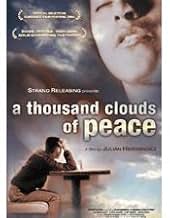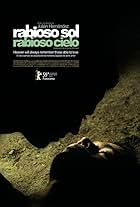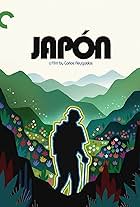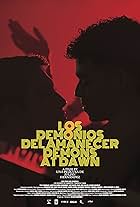'Mil nubes de paz cercan el cielo, amor, jamas acabaras de ser amor', the Spanish title (extracted from a poem by Pasolini) of this little film from Mexico, is translated for the English language audience as 'A Thousand Clouds of Peace'. Writer/director Julian Hernandez seems to emulate Pasolini's films but has yet to reach the subtle artistry of the Italian master's genre. The film is shot in black and white, uses very little dialogue, and stresses the use of the camera (often at odds with the flow of the storyline) in presenting what appears to be a reflection on the pain of losing love.
Gerardo (Juan Carlos Ortuno) is a 17-year old lad who has apparently just been jilted by his lover Bruno (Juan Carlos Torres) who ended the only affair of Gerardo's life with a letter that plunges Gerardo into despair. Gerardo walks the streets of Mexico City, looking for signs of his lost love, pining away on a bridge, pausing to find the soundtrack recording of an old shared film, attempting unsuccessfully to kindle romance with the occasional hustler and at times meeting with physical abuse. When he is not wandering in his sadness he stays in his room yearning for what is lost and confining his needs to his solo physical dreams. He encounters old friends, both male and female, but there is no real antidote for the loss he is experiencing. And like so many tragic love stories, this one has no happy ending.
Hernandez gives evidence of a potentially potent filmmaker: certainly his subject matter and his frankness of showing frontal nudity and some frankness of contact demonstrate that he is a brave writer and director. Juan Carlos Ortuna is an inexperienced actor, but with Hernandez' guidance he manages to make us feel his plight, trust his genuine grief, and in general make us hope he finds resolution. And to accomplish that with almost no dialogue, relying only on facial and physical shots, shows promise. In Spanish with English subtitles. Grady Harp
























